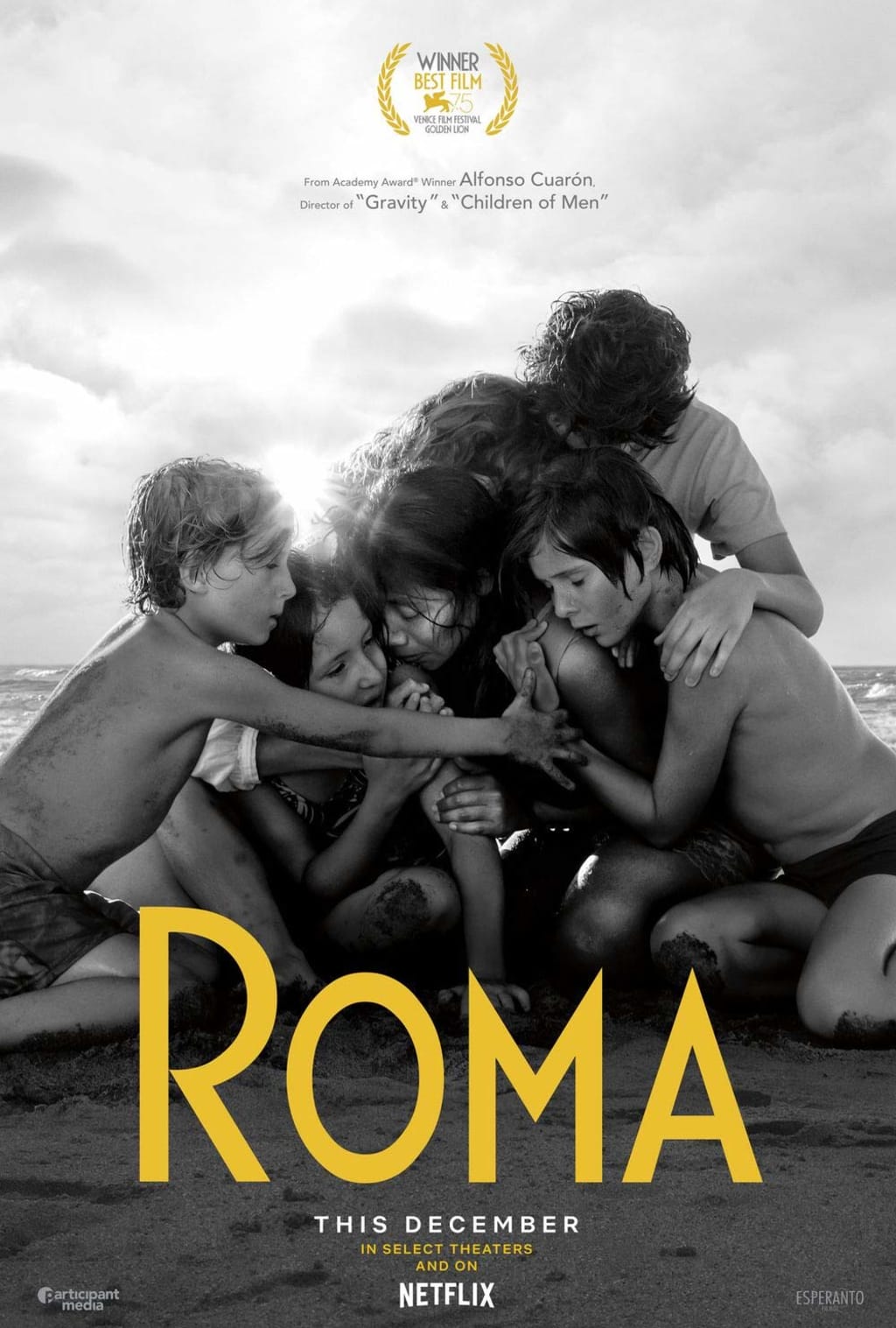Film Flipback: 'Roma'
A Look Back at the Masterpiece from 2018 by Alfonso Cuaron

Let’s talk about the film that should have won Best Picture at the 91st annual Oscars. Let’s talk about the most visually stunning, thematically striking film to premiere in 2018 (Sans Spider-Man: Into the Spider Verse, but that’s a topic for another day). Let’s turn back the page and look at Roma, Alfonso Cuaron’s cinematic ode to 1960s Mexico.
From the film’s opening shot, viewers are challenged to make sense of subtle symbolism such as soapsuds spread over concrete as the main character cleans a parking alley filled with dog poop for her employers. By the end of the film, these same suds are evoked when Cleo, a live-in maid, saves her employer’s children from drowning beneath the ocean surf at the beach. Roma is a movie full of dichotomy. We are confronted with cleanliness in the face of dog feces, violence preceding tenderness, death juxtaposed with life. Cleo herself is a member of the lower income class, but because of her position as a maid with a well to-do family, she exists in spaces normally unavailable to her. She gets to join the family she works for on Christmas holiday, is shielded from the political strife that consumes Mexico, and even gets to watch TV from time to time.
On the other hand, Cleo is still subject to many of the pitfalls of poverty. She struggles to find love, and when she does find it, is betrayed by a man who appeared to be everything she wanted and needed in life. In turn, she finds herself pregnant, abandoned and still hard at work for her employers. And interestingly, while Cleo struggles to create a family, the family she works for frays and disintegrates. The patriarch of the family abandons his wife and children, choosing a younger woman to flaunt around Mexico. And all of this storytelling occurs mostly from inside the insulated family household where Cleo works. Outside, we, along with the main characters, hear whispers of great political strife and social upheaval. Cleo’s mother, a woman of indigenous descent, has her land stolen from her by the government, and students take to the streets all across the country in protests.
The contrasts never stop coming, as in the film as we see a pregnant Cleo rushing past an outdoor coffin dispensary, and then later witness an outbreak of violence as she is taken crib shopping by her employer’s mother. We can see differences in how each of the four children in the film are treated—from the older rambunctious boys, to the more timid daughter. This is without mentioning the third son, who is chock full of odd mannerisms and old soul wisdoms. These contradictions and comparisons paint a wide world full of comedy and tragedy, drama, and peace. It is a world totally like our own, and yet a world we would probably never notice.
There are plenty of tear jerking moments in Roma, most of which I will do my best not to spoil here. Suffice it to say that only the steely hearted will come away from this film without tearing up in joy or anguish at least twice. The instances of tragedy are perhaps only matched by the instances of truth. Cuaron is unafraid to show his actors in the full nude, male or female, and puts toxic masculinity within his own culture on full display. For a film ostensibly concerned with a very microcosmic level of storytelling, it weaves a narrative that is both large and universal. A ten out of ten.
About the Creator
Wilbert Turner III
A writer of fiction, cinema insights and television reviews. Every read helps and every share helps even more.






Comments
There are no comments for this story
Be the first to respond and start the conversation.